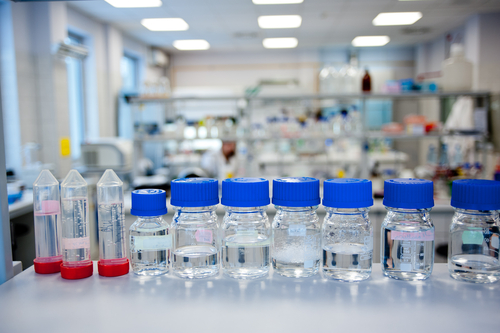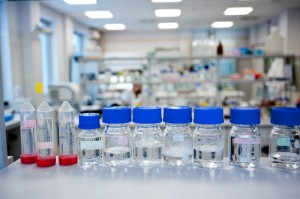PH Therapy Riociguat to Be Tested on Patients with dcSSc

 Those in the Scleroderma community are taking note of recent news that Bayer HealthCare will be initiating a randomized, double-blind, placebo-controlled, Phase II clinical study to investigate efficacy and safety of riociguat in patients suffering from diffuse cutaneous systemic sclerosis (dcSSc), according to an announcement by the company. The study is included in a global collaboration with Merck & Co., Inc. to search for new treatments with soluble guanylate cyclase (sGC) stimulators such riociguat and develop them for new indications. Given that SSc, also known as Scleroderma, currently lacks FDA-approved therapies, the prospect of new treatments in the drug development pipeline is significant.
Those in the Scleroderma community are taking note of recent news that Bayer HealthCare will be initiating a randomized, double-blind, placebo-controlled, Phase II clinical study to investigate efficacy and safety of riociguat in patients suffering from diffuse cutaneous systemic sclerosis (dcSSc), according to an announcement by the company. The study is included in a global collaboration with Merck & Co., Inc. to search for new treatments with soluble guanylate cyclase (sGC) stimulators such riociguat and develop them for new indications. Given that SSc, also known as Scleroderma, currently lacks FDA-approved therapies, the prospect of new treatments in the drug development pipeline is significant.
Systemic sclerosis (SSc) is an autoimmune disease affecting between 70 and 400 people per million (autoimmune diseases are characterized by a hyper-reactive response of the immune response against substances, and tissues normally present within the body). It is characterized by thickening of the skin, but also other organs such as heart, lungs, GI tract, and kidneys. SSc is divided into two forms — limited cutaneous SSc, which is restricted to the skin in face, hands and feet while diffuse cutaneous SSc has a higher risk to impact internal organs, such as heart and lungs. Patients affected with SSc usually exhibit the diffuse type in 35-40% of the cases. Currently, no treatment is available to stop or delay the progression of the disease in SSc patients.
The study that will be initiated — the RISE-SSc study (Riociguat Safety and Efficacy in patients with diffuse cutaneous Systemic Sclerosis [dcSSc]) — will evaluate the efficacy and safety of riociguat on fibrosis of the skin and lungs in more than 130 patients from 15 countries over a period of 13 months. The study will also determine riociguat’s impact on digital ulcers, a frequent manifestation of patients with systemic sclerosis. This study comes as a follow-up to the orphan drug status given by the European Commission and the FDA to riociguat as an ongoing investigational drug.
Riociguat, the first member of a class of soluble guanylate cyclase (sGC) stimulators, is already an approved therapeutic under the trade name Adempas® for two forms of PH (inoperable chronic thromboembolic pulmonary hypertension [CTEPH] or persistent or recurrent CTEPH after surgical treatment and pulmonary arterial hypertension [PAH]).






